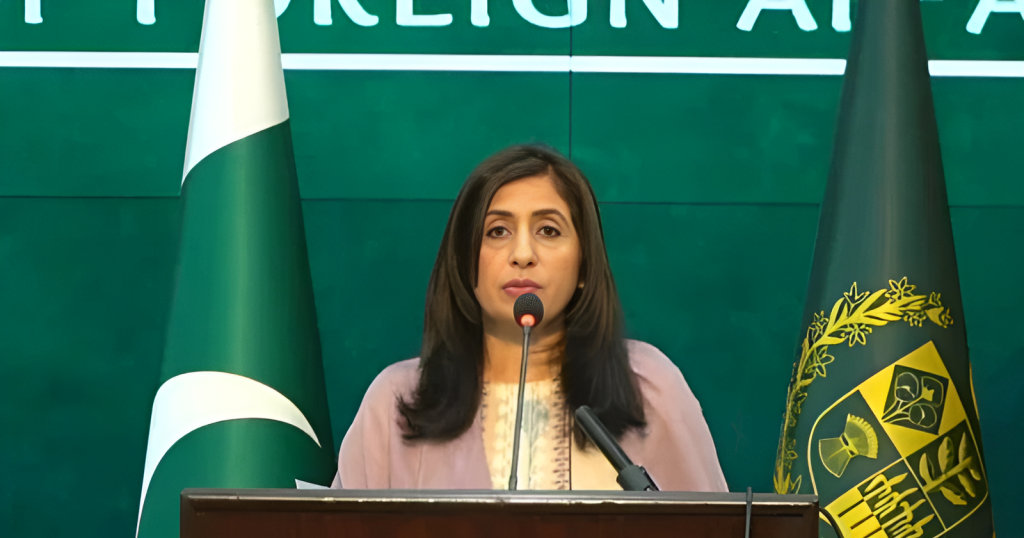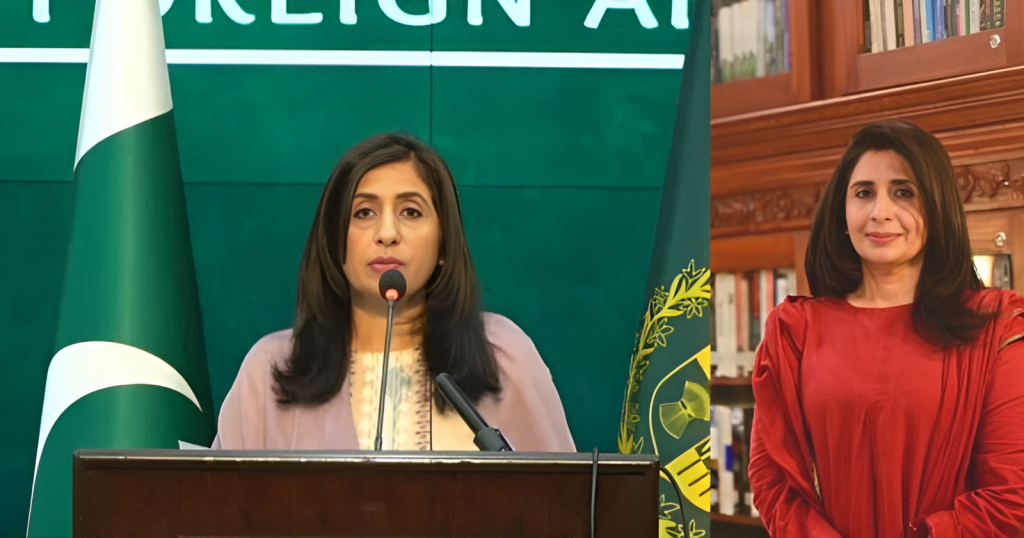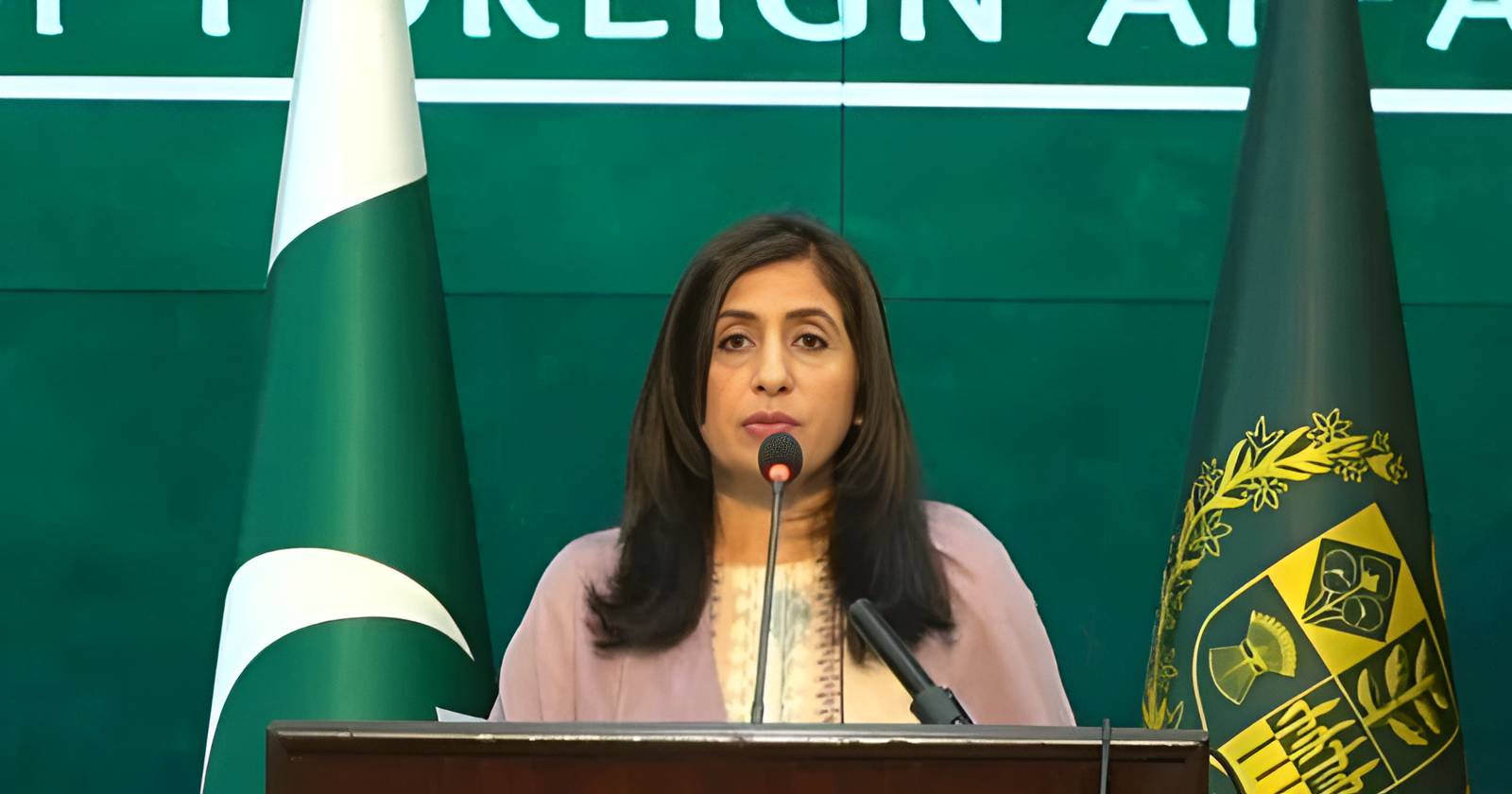
On October 24, 2024, Foreign Office Spokesperson Mumtaz Zahra Baloch held the weekly briefing at the Ministry of Foreign Affairs.
Islamabad: Pakistan has denounced the recent actions of US lawmakers, calling their move “contrary to inter-state conduct and diplomatic norms.” This reaction followed a letter from over 60 US House Representatives, urging President Joe Biden to use Washington’s influence to secure the release of Pakistan Tehreek-e-Insaf (PTI) founder and former Prime Minister Imran Khan. The letter also highlighted concerns about human rights in Pakistan and raised questions about the country’s electoral process ahead of the February 2024 elections.
Foreign Office Spokesperson Mumtaz Zahra Baloch addressed the issue during her weekly briefing at the Ministry of Foreign Affairs. Responding to questions about the letter, Baloch emphasized Pakistan’s commitment to maintaining a constructive relationship with the US. However, she criticized the lawmakers’ comments on Pakistan’s internal affairs, stating, “Pakistan values its bilateral relations with the United States. We believe in constructive dialogue and engagement to address any concern.” She further added, “Such letters and statements are counterproductive and not in line with the positive dynamics of Pakistan-US bilateral relations.”
The letter marks the first collective call from US lawmakers for Khan’s release. Led by Representative Greg Casar, the lawmakers asked President Biden to prioritize human rights in US foreign policy towards Pakistan, citing concerns over political freedom and the imprisonment of Khan. Imran Khan, who has been jailed since August 2023 after his conviction in the Toshakhana criminal case, denies the allegations. His arrest came amid a series of legal challenges and ahead of national elections scheduled for February 2024, fueling concerns among his supporters and international observers about political fairness.
The US lawmakers appealed for immediate intervention, stating, “We urge you to use the United States’ substantial leverage with Pakistan’s government to secure the release of political prisoners, including former Prime Minister Khan, and to curtail widespread human rights abuses.” They also requested that US embassy officials visit Khan in Adiala Jail to ensure his safety and well-being in custody.
The letter further noted the multiple cases filed against Khan since his ouster from office in April 2022 through a no-confidence vote. Representative Casar highlighted Khan’s strained relations with Washington, partly due to his outspoken criticism of US foreign policy, which has complicated diplomatic relations.
In response, Pakistan’s Foreign Office rejected the US lawmakers’ concerns, stating that the letter reflects a misunderstanding of the political situation in the country. “These letters are based on incorrect understandings of the political situation in Pakistan,” Baloch said, reiterating Pakistan’s stance that diplomatic relations should focus on strengthening cooperation rather than interfering in domestic matters. She expressed hope that the US Congress would play a more constructive role in enhancing bilateral ties.
In addition to addressing the letter from US lawmakers, Baloch also responded to a recent statement by the Office of the High Commissioner for Human Rights (OHCHR) regarding Pakistan’s 26th constitutional amendment. She dismissed the OHCHR’s statement as “misinformed” and based on inaccurate media reports and speculative political analysis. Baloch criticized the OHCHR for drawing “unwarranted conclusions” and urged the organization to focus on actual human rights violations in other parts of the world.
The 26th constitutional amendment, passed by the Shehbaz Sharif-led government with the support of its allies, including the Pakistan People’s Party (PPP), introduced significant reforms. Among other changes, the legislation empowers lawmakers to select the Chief Justice of Pakistan (CJP) from among the three most senior Supreme Court judges. This reform has been a point of contention in Pakistan’s political landscape, with critics raising concerns about the judiciary’s independence.
Baloch emphasized that international organizations should refrain from making inaccurate assessments of Pakistan’s domestic affairs, and instead focus on pressing global human rights concerns. She noted that Pakistan remains committed to upholding human rights but will not tolerate unwarranted criticism of its political processes.
As Pakistan heads toward its elections in early 2024, the diplomatic tension between Islamabad and Washington has heightened. Imran Khan’s imprisonment and the US lawmakers’ call for his release have put Pakistan’s internal politics under global scrutiny. How Pakistan navigates these complex challenges, especially in maintaining strong relations with key international partners like the US, will be pivotal for the country’s political future.









